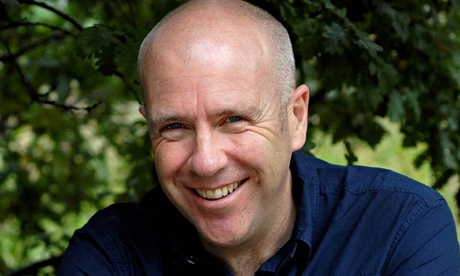This year might see the first American winner, the oldest winner or the first winning story set in the future. So why does it feel like the shortlist has the same sort of book as ever?

Richard Flanagan would be the first Tasmanian winner. Photograph: Ulf Andersen/Chatto & Windus/PA
One Man Booker prize first was guaranteed from the outset this year, with the "opening up" of the award to American novelists, but other firsts or superlatives can be confidently expected whichever shortlisted author collects the £50,000 purse next month. At 72, Howard Jacobson would be the oldest ever winner (he was only the oldest since William Golding in 2010), and the first double winner to triumph with different publishers, having returned from Bloomsbury to Cape. Ali Smith would be the first Scottish woman to win – Muriel Spark was a serial losing finalist – and the first Scot of either sex to win for 20 years, since James Kelman.
Richard Flanagan would be the first Tasmanian winner, the first victor whose oeuvre includes ghost-writing a notorious conman's autoiography, and perhaps the first to have seen an acclaimed earlier novel (Gould's Book of Fish, which took the Commonwealth writers' prize) scandalously not even longlisted. Either Joshua Ferris or Karen Joy Fowler would of course be the first American to win. Neel Mukherjee would be the first winner from Kolkata, and – if he continues to head the betting – the first frontrunner in recent memory besides Hilary Mantel to defy the curse of favouritism and emerge victorious (the curse already appeared to operate this year at the preceding stage, with the longlist favourite David Mitchell not shortlisted).
As for their books, Mukherjee's The Lives of Others would be the first winner to pinch its title from a film. Either Flanagan's The Narrow Road to the Deep North or Ferris's To Rise Again at a Decent Hour (also the first contender to risk starting with an infinitive) would be the longest-ever winning title, and in a strong year for elongated monickers Fowler's We Are All Completely Beside Ourselves would equal the previous six-word best. Her novel would be the first winner with a chimp as protagonist (following Me Cheeta's longlisting in 2009), Ferris's the first with a dentist as protagonist, and Flanagan's revisiting of the second world war "death railway" in south Asia would be the third historical winner on the trot
More
Richard Flanagan would be the first Tasmanian winner, the first victor whose oeuvre includes ghost-writing a notorious conman's autoiography, and perhaps the first to have seen an acclaimed earlier novel (Gould's Book of Fish, which took the Commonwealth writers' prize) scandalously not even longlisted. Either Joshua Ferris or Karen Joy Fowler would of course be the first American to win. Neel Mukherjee would be the first winner from Kolkata, and – if he continues to head the betting – the first frontrunner in recent memory besides Hilary Mantel to defy the curse of favouritism and emerge victorious (the curse already appeared to operate this year at the preceding stage, with the longlist favourite David Mitchell not shortlisted).
As for their books, Mukherjee's The Lives of Others would be the first winner to pinch its title from a film. Either Flanagan's The Narrow Road to the Deep North or Ferris's To Rise Again at a Decent Hour (also the first contender to risk starting with an infinitive) would be the longest-ever winning title, and in a strong year for elongated monickers Fowler's We Are All Completely Beside Ourselves would equal the previous six-word best. Her novel would be the first winner with a chimp as protagonist (following Me Cheeta's longlisting in 2009), Ferris's the first with a dentist as protagonist, and Flanagan's revisiting of the second world war "death railway" in south Asia would be the third historical winner on the trot
More
No comments:
Post a Comment